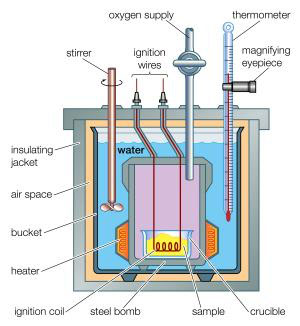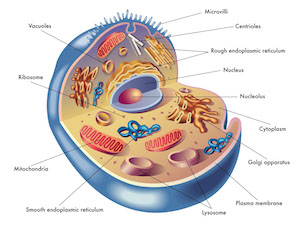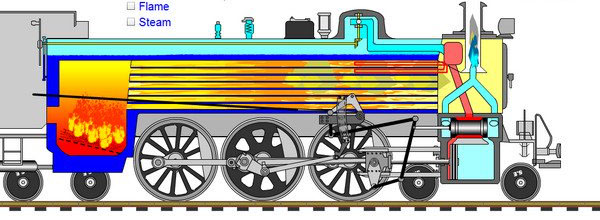No one eats calories; calories are a measurement and have no substance. The term calorie comes from “calor”, the Latin for “heat” which was originally used to measure the efficiency of steam engines
A Calorie (kcal) is the amount of energy needed to raise the temperature of 1 kilogram of water 1 degree Celsius at 1 atmosphere pressure using a device known as a bomb calorimeter.

The calorie theory is based on the heat engine analogy also known as thermodynamics by engineers. The human body is not a heat engine, as they would like you to believe. The human body is more like a complex chemical factory than it is a heat engine.
Food is converted in to complex substances and structures and not as a machine designed for heat production, which the measurement of a calorie is.
A scientist named Adolph Fick proved in 1893 that living cells cannot be heat engines. Biological systems like humans are isothermal (equal temperature) systems. Cells cannot act as heat engines, for they have no means of permitting heat to flow from a warmer to a cooler body.
Nobel Prize-winner, Hans Krebs, mentioned in his book about another Nobel Prize-winner, Otto Warburg, M.D., Ph.D. “Fick made it clear in 1893 that living cells cannot be heat engines…”


Herman Taller, M.D, author of Calories Don’t Count stated, “One could assert with absolute certainty that the calorie theory has no scientific basis whatsoever”
In 2003, Harvard University study found people on a low carbohydrate diet could eat 25,000 more calories than those on a high carbohydrate diet over a 12-week period and they gained no additional weight. If the calorie theory was correct then the low carbohydrate group should have gained a little over 7lbs of fat.
In another study conducted at Harvard University, some participants ate only carbohydrates, while other participants ate twice as many calories of only protein. Although the protein eaters ate twice as many calories as the carbohydrates eaters, they didn’t gain any weight, whereas the carbohydrates eaters gained weight despite eating fewer calories.
In yet another semi-related study shows that a low-carb diet is more successful than a low-fat diet. In the two-year study, 322 moderately obese people were given one of three diets: a low-fat, calorie-restricted diet; a Mediterranean calorie-restricted diet; or a low-carbohydrate diet with the fewest carbohydrates, highest fat, protein, and dietary cholesterol. The low-carb dieters had no caloric restrictions. At the end of the study the low-fat, calorie-restricted dieters lost 6.5 lbs, the Mediterranean dieters lost 10 lbs, and the low-carb dieters lost 10.3 lbs. Not only that, but dieters on the low-fat, calorie-restricted diet cholesterol levels dropped 12 percent. The low-carb dieters cholesterol dropped 20 percent.
Calorie-restricted dieters lost 6.5 lbs, the Mediterranean dieters lost 10 lbs, and the low-carb dieters lost 10.3 lbs. Not only that, but dieters on the low-fat, calorie-restricted diet cholesterol levels dropped 12 percent. The low-carb dieters cholesterol dropped 20 percent.
Attempting to calculate daily energy expenditure based on this calorie theory is a near impossibe task. The variables involved included rate of digestion, the required energy to actually digest the food and these factors vary with the type of food being consumed. On top of this these factors also vary on the individual. One factor for this may be the microbial ecology of the gastrointestinal system.
Even though studies coupled with real life experience have repeatedly disproven the calorie theory, so-called “experts” haven’t caught up.
“It does not matter how smart you are, who made the guess, or what his name is – if it disagrees with real-life results, it is wrong. That is all there is to It.”
Richard Feynman, Nobel Prize-winning physicist.
“There is no stranger phenomena than the maintenance of a constant bodyweight under marked variation in bodily activity and food consumption.”
Du Bois, Basal Metabolism in Health and Disease, 1936
“Mobilization and deposition of fat go on continuously without regard to the nutritional state of the animal.”
“The ‘classical theory’ that fat is deposited in the adipose tissue only when given excess of the caloric requirements has finally disproved.”
Ernst Wertheimer, Physiological Reviews, 1948
References:
- Microbial ecology of the gastrointestinal track https://utah.instructure.com/files/44467255/download?download_frd=1
- The Calorie Myth https://www.bookdepository.com/Calorie-Myth-Jonathan-Bailor/9780062267344?ref=grid-view&qid=1555545311076&sr=1-1/?a_aid=integratedperformanc
- Calories Don’t Count. Hermann Taller. 1962. https://www.bookdepository.com/Calories-Dont-Count-Hermann-Taller/9780434756001?ref=grid-view&qid=1555546588533&sr=1-8
- The Hidden Story of Cancer https://www.bookdepository.com/Hidden-Story-Cancer-Brian-S-Peskin/9780988278004?ref=grid-view&qid=1555547206692&sr=1-2/?a_aid=integratedperformanc
